Black Stories Matter, a live online storytelling show benefiting Black Lives Matter DC, will be presented by the DMV’s Better Said Than Done on Zoom July 10, 2020. Black Stories Matter features eight storytellers from around the United States sharing personal stories of living Black in America.
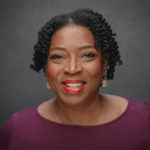
Of the power of storytelling to inform, Chicago storyteller Lynne Jordan said, “Storytelling unites us. It can take the personal and make it universal. It can teach and penetrate the hearts of people and bring us together. It’s a way to see.”
“Every storytelling show is a chance to give the storyteller and the story listener a chance to experience a slice of life from a different perspective. At the moment the nation is willing to listen to what people say,” said Nick Baskerville, who will emcee and direct Black Stories Matter.
“I wanted to help facilitate a place that took advantage of that space in a useful way. There are people with the right stories for the world to hear. I wanted a chance to help make that happen,” said Baskerville.

New York City storyteller Ria Spencer added, “Storytelling connects people. It’s how we share our truth. As the country faces a long-overdue reckoning, humanizing the Black experience is critical. People might not remember all the statistics…but they’ll remember the stories.”

In answer to why Black Stories Matter is important, storyteller Jacoby Cochran recounted, “As a storyteller in Chicago, my introduction to the ‘scene’ was through primarily white shows and audiences. Unfortunately, that got me in this initial mindset of relatability. ‘How could I make my stories make sense for them?’ It wasn’t until I performed at Grown Folks Stories, a storytelling show on the South Side founded and rUn by Black women, when I started to see an array of Black stories truly represented in my city. This early experience freed me from the respectability politics that often dominate white performance spaces. It was a reminder to bring my authentic and full self to every stage. Black Stories Matter is a reminder to Black performers that we are and have always been good enough. Our language, culture, experiences, uniqueness is to be celebrated and displayed and never exploited and watered down.”
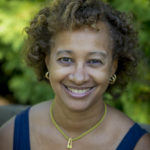
As Massachusetts storyteller Angie Chatman puts it, “A good story, regardless of the details, addresses an aspect of the human condition. Good stories appeal to those basic emotions—love, fear, anger, greed. I don’t tell my stories to teach a lesson. I tell my stories to share an emotional experience with an audience.”
Lynne Jordan expands on the importance of story: “When you share a universal truth about emotions—pain, fear, love, betrayal, humor—it creates empathy. When people see themselves in the situation, or can relate because they feel for/with you the storyteller, then things become clear. The story about my grandfather escaping savagery in the South isn’t a lesson. It is his story. The learning comes from the raw emotion that the empathetic audience sees when I tell the story. I’m just providing the visual and the emotion through spoken words, the listener sees and feels and, if they think about it, they may discover that they have their own stories to share.”

As Spencer puts it, “Storytelling cracks people open in a way that’s different from any other art form I’ve seen. It lets you see yourself in someone else while simultaneously inspiring you to be more honest with yourself. At the end of a show whenever someone comes up to me and tells me their story, I know I’ve done my job.”
“For me, Black Lives Matter is a statement of fact, demand for the dissolution of state violence, and also an intersectional rallying cry reminding us that Black Lives does not mean Black Male Lives but instead means Black Womens’ Lives, Black Non Binary Lives, Black Trans Lives, Black Gay and Lesbian and Bi Lives, Black Children’s Lives, BLACK LIVES in its entirety,” Cochran explains. “Furthermore, I believe BLM is much more than a statement about racial equality alone. Black Lives Matter also opens the gate for a larger critique of neoliberal capitalism and the commodification of identities and bodies in our society.”

Jordan adds, “BLM means that our citizens will no longer accept the status quo. It has become too apparent that Black Lives are not valued in this country in particular. Bad situations keep happening with no repercussions and no penalties in too many cases. No one cries out for these injustices, and it’s time for our voices to be heard and unified with our allies. This country must recognize and acknowledge these injustices and reform must start now and we will keep protesting until this happens.”
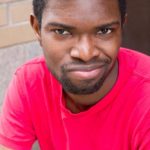
“America’s default and promulgated origin story is that we are a nation of immigrants,” continues Chatman. “That story is a lie. The whole truth is that America is a nation of native peoples, immigrants, and slaves. Black Lives Matter protests are in part about recognizing Black people in America’s origin story.”
On the connection between Black stories and Black Lives Matter, storyteller Donna Washington of Durham, NC, concludes, “Since the beginning of BLM, I have been struck by how much this is about stories. Our country is rife with history, but we don’t tell all of it. There is a resistance to facing the stories that cast our country in either a bad or less than favorable light.
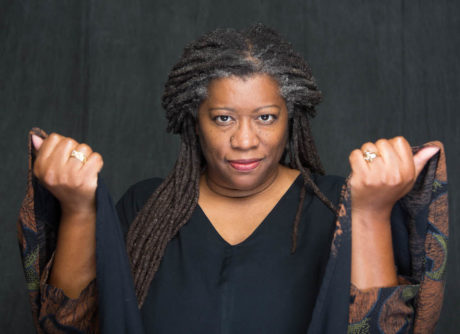
“The reason Black Lives Matter is such a powerful movement is because it forces the establishment to face an uncomfortable fact: The stories we tell about Black and Brown people are different than the one we tell about white people. A young white supremacist murders a Black prayer circle in their sanctuary, the officers disarm him peacefully and buy him lunch. George Floyd is detained for having a counterfeit bill. They handcuff him, and while he poses no threat, an officer leans his knee into George’s neck and slowly suffocates him with an unconcerned look on his face, and a hand in his pocket. The white supremacist is a young, troubled kid. He isn’t dangerous. George Floyd is a contained, unresisting Black man. He is inherently dangerous. At the heart of our struggle for the right to just live in this country is the story that is told about Black and Brown Americans as lazy, dangerous, disrespectful, destructive, unintelligent, violent, angry, uncivilized, greedy, whining, ‘takers,’ who must be controlled or they will burn white society to the ground. Our story is that we belong wherever we are. We have the right to sit on our porch. We have the right to watch birds in a park. We have the right to get pulled over if we have done something wrong, get ticketed, and then be on our way without being murdered. We will keep telling that story until it is true. That is why I agreed to be part of this event. If we are going to alter the story, then every person who can has to add their voice to the story.”
“Black Stories Matter is first and foremost a storytelling show. We invite the audience to join us, to listen, to learn, to connect,” added Baskerville. The event is also a benefit concert, with funds being raised for Black Lives Matter DC.
Black Stories Matter tickets are on sale online. Better Said Than Done is asking the audience to pay what they can—with a sliding scale starting as low as $5 and a suggested contribution of $25. The Zoom login information is sent after registration is complete. The show is online and will be broadcast live 9 p.m to 10:30 p.m. on Friday, July 10, 2020.
Storytellers will include Sheila Arnold, Calvin S. Cato, Angie Chatman, Jacoby Cochran, Geoff Jackson, Lynne Jordan, Ria Spencer, and Donna Washington. Bios can be found here.
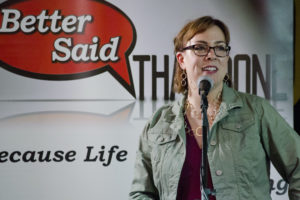
Note: Better Said Than Done usually defines storytelling as the art of performing a true, personal story in front of a live audience. Most important, storytelling is a performance, an art, a form of entertainment, and, from our mouths, a reality the audience will not forget. Better Said Than Done, Inc., was launched in May 2011, by Jessica Piscitelli Robinson, to bring the art of storytelling to Northern Virginia. For more information on upcoming shows, storytellers, or workshops, please visit Better Said Than Done.





Any chance this will be recorded and posted on FB or YouTube after?